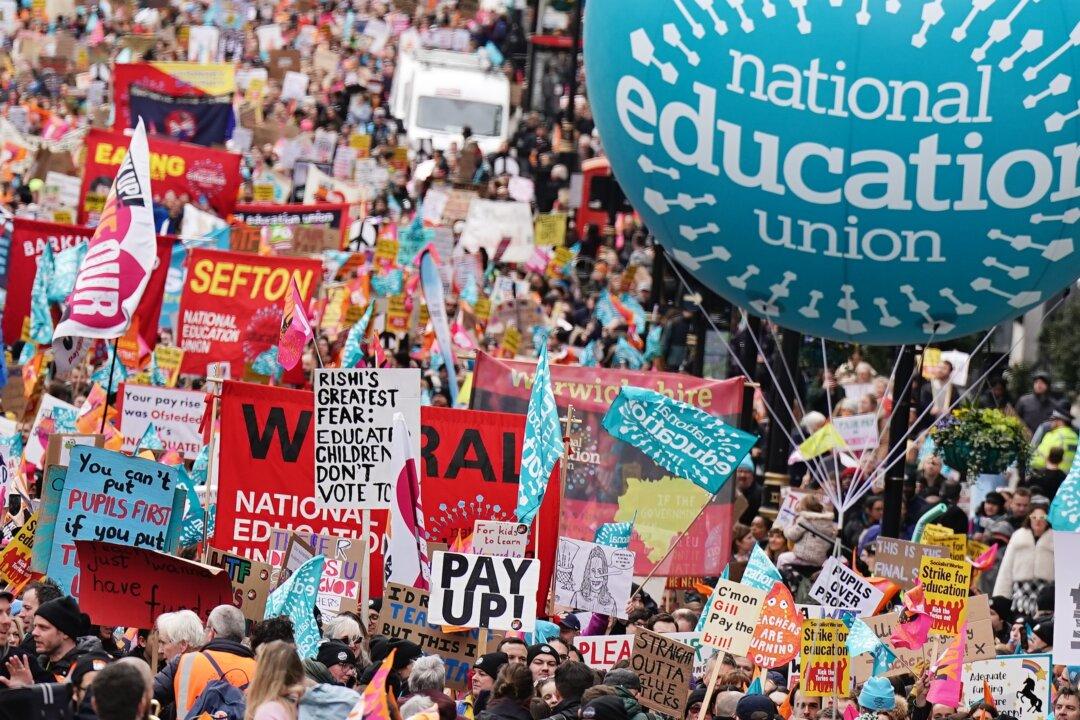Teachers in England are set to strike again in the following months as the largest teachers union overwhelmingly rejected the government’s pay offer.
Strikes will go ahead on April 27 and May 2 unless Education Secretary Gillian Keegan can reach an agreement with the union before then, the National Education Union (NEU) said on Monday.





